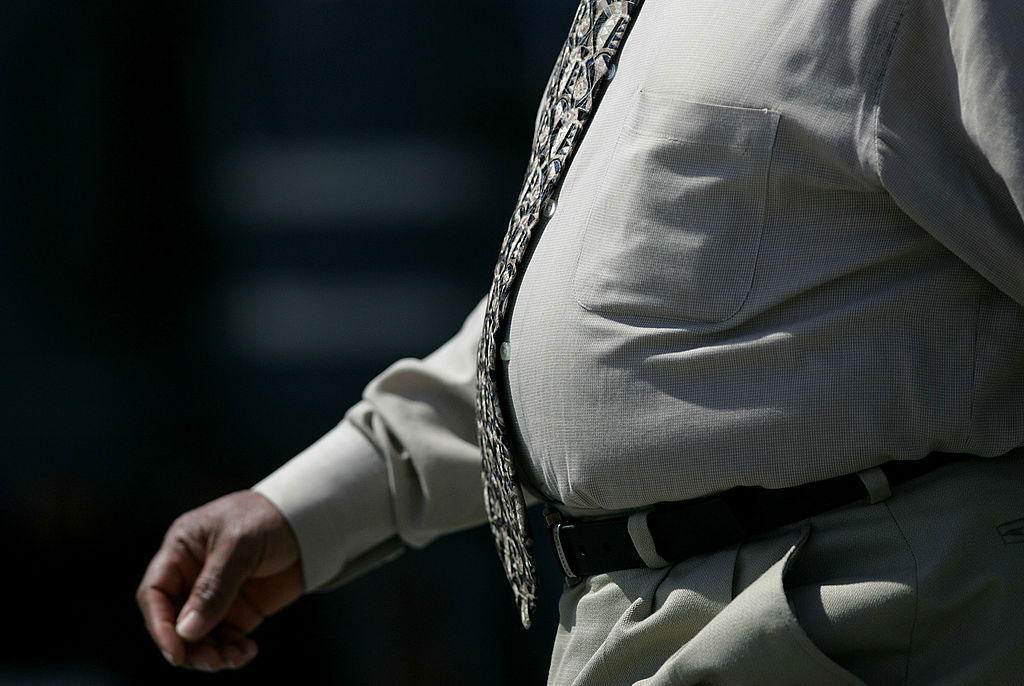Certain Gut Flora Cause Weight Gain

The human gut is far more complicated and essential to health than once believed.
Scientists are just beginning to understand how microbes in your gut (gut flora) can control weight, with a focus on how they obtain energy from food and influence weight gain or loss.
This theory would seem to undercut calorie-counting diets and make what you eat in general more important in terms of controlling the billions of bacteria that populate the human gut.
YOU MIGHT ALSO LIKE: Should You Eat Fermented Foods?
According to a new book, identical twins could both be put on high-calorie diets in which they eat 1,000 extra calories a day, and one might gain more than 26 pounds in six weeks while his sibling might gain as little as 9 pounds.
“Microbes are not only essential to how we digest food,” author Tim Spector, MD, a leading genetics expert at King’s College London, told the U.K.-based Daily Mail. “They also control the calories we absorb and provide vital enzymes and vitamins, as well as keeping our immune system healthy.”
Spector believes gut flora are likely responsible for much of the obesity epidemic, with the problem being our modern diet and its effect on our gut bacteria, known as the microbiome. He is the author of “The Diet Myth: The Real Science Behind What We Eat.”
“You might have predicted that a twin who had the willpower to diet regularly would have something to show for their years of sacrifice,’ Spector says. “Instead, I found no difference in weight between a twin who had dieted regularly for the past 20 years and her identical twin who had never been on a serious diet.”
Spector believes one of the reasons why is that our bodies have evolved to resist times of famine by holding onto their stores of fat. The increasing promotion of restrictive diets that depend on just a few ingredients will “inevitably lead to a further reduction in microbe diversity and, eventually, to ill-health.”
Gut flora outnumber our own cells 10 to one, writes Claudia Wallis. It’s the composition of this diversity that determines whether we are prone to be lean or overweight, but we have greatly reduced the kinds of foods we eat compared to our ancestors.
YOU MIGHT ALSO LIKE: How to Choose a Probiotic
“Lean individuals, for example, (tend) to have a wider variety of Bacteroidetes, a large tribe of microbes that specialize in breaking down bulky plant starches and fibers into shorter molecules that the body can use as a source of energy,” she writes.
But, conversely, if you tend to be overweight, you may have a “job vacancy” normally filled by a bacterium that helps regulate appetite by modulating levels of ghrelin — a hunger-stimulating hormone.
“(This bacterium) was once abundant in the American digestive tract but is now rare, thanks to more hygienic living conditions and the use of antibiotics,” researcher Martin Blaser, MD, of New York University told Scientific American. He is the author of the new book “Missing Microbes.”
Because diet in large part shapes the composition of the bacterial colonies that can determine fat retention among other qualities, researchers are experimenting with prebiotics and probiotics to modify microbial populations in the gut.
Researchers are still grappling with how much of the difference between lean and overweight people is lifestyle factors, diet or genetic predisposition, one study states.
“An understanding of the (development) of our gut microbial population profiles, and how this contributes to the development of our immune system, may enable early intervention or prevention of the formation of undesirable microbial profiles and the consequences,” the study authors write. “In this context, defining the factors which dictate the development of our human microbial populations in early life will be important.”
One aspect of weight loss or gain that has been made clear by research so far is that calorie counting and exercise may not be the most important aspects of becoming and staying thin. It well may lie in the composition of the human microbiome and which residents dominate the landscape.
"Simply put, if you get the microbiome — that collection of bacteria inside you — healthy, you will lose weight," Raphael Kellman, MD, a New York City physician and author of “The Microbiome Diet” told Health. "It's less about eating a certain percentage of carbohydrates, protein and fat than about correcting the overgrowth of unhealthy bacteria, which is making you crave the wrong foods, triggering inflammation."
Updated:
March 26, 2020
Reviewed By:
Christopher Nystuen, MD, MBA